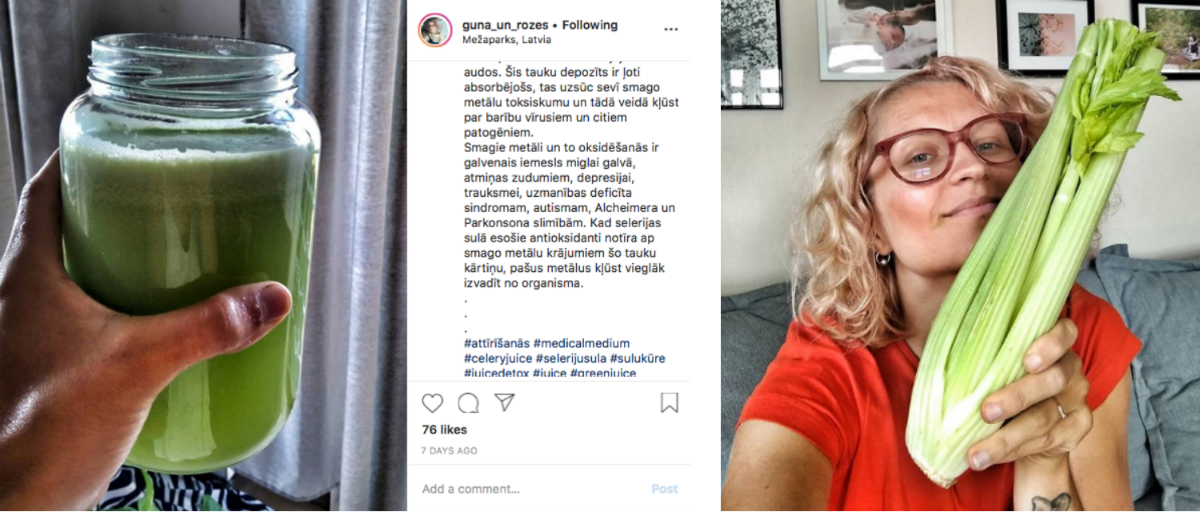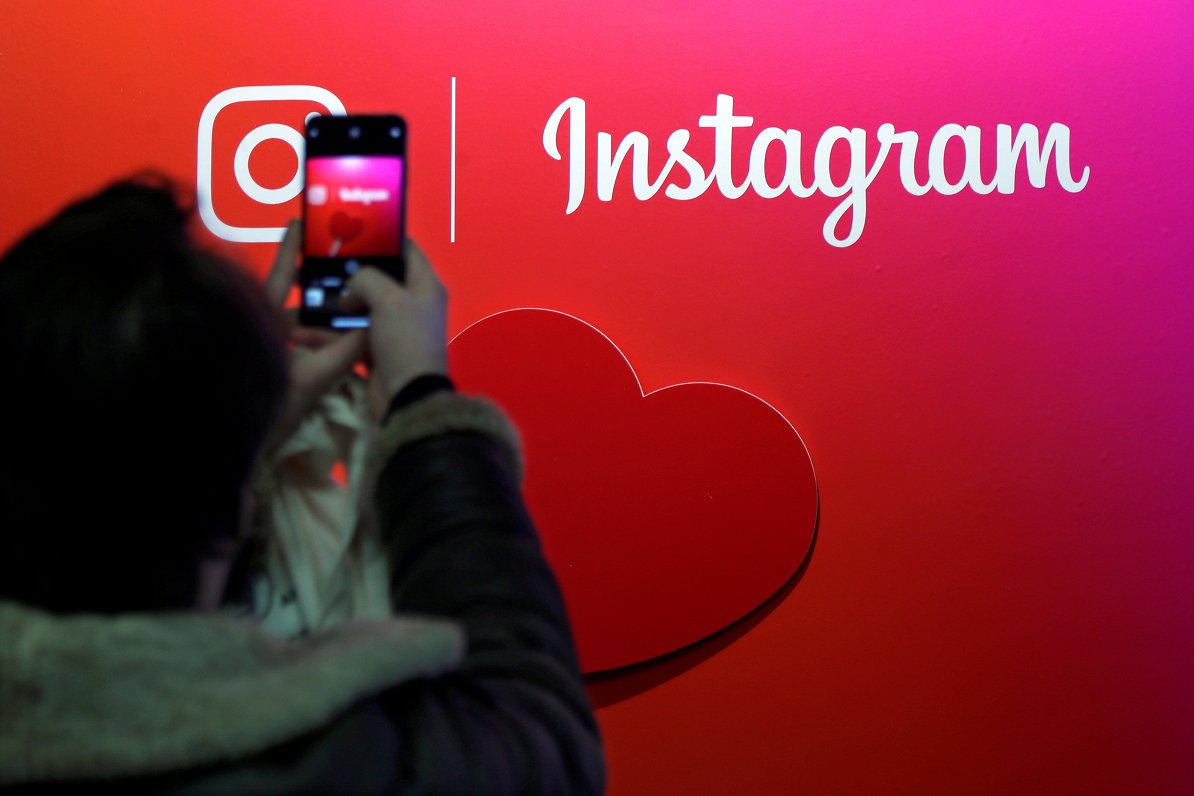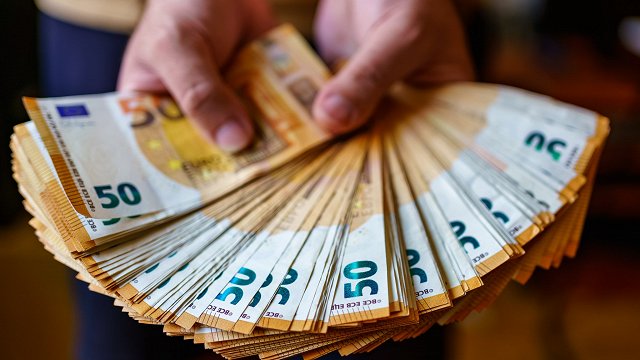Last year the UK’s Advertising Standards Agency ruled that 30,000 followers on Instagram makes someone a “celebrity”, and therefore has to follow celebrity endorsement laws (Evening Standard, 4 July 2019). While few members of the Latvian Blogger and Influencer Association qualify for this status, the impact of so-called “micro-influencers” also can't be discounted.
“One of the miracles is that this fantastic fruit prevents the formation of cancer cells. Even if metastasis has set in, then it stops it. It really is such a miracle product,” said influencer Kate Vegmane.
She took to Instagram to advertise noni (morinda citrifolia) fruit juice to her 6,000 followers in a video on Instagram TV. However Vegmane has zero medical qualifications and her claims of medical benefits are not only untrue, but also violate commercial law as they're not backed by scientific studies.
“If such a fruit just had been discovered that could cure cancer, that person would be a Nobel Prize winner,” said Pauls Stradiņš Clinical University Hospital Oncologist Viktors Kozirovskis.
The doctor considers the dissemination of this type of information to be extremely dangerous, as people with cancer could possibly be desperate and ready to believe anything. Other patients have even asked him to give them an intravenous soda mixture that they read about. Vegmane has not sold these mixtures, but has also discussed their benefits on her social media.
“If we ruin the PH level of our blood we won't have to wait long before ending up in intensive care. It's a serious condition when you're organism can't cope with the acidic and base balance,” said “Veselības centrs 4” Gastroenerologist Ilona Vilkoite.
Uncontrolled business
Estimates are that Instagram ads will be a 5-10 billion USD market this year, but no one really knows how big the influencer business is in Latvia. More than 220 000 people use the social network in Latvia every month, which is more than watch the most popular news shows. If we leave out such international celebrities as basketball superstar Kristaps Porziņģis, most local influencers only qualify as nano-influencers, but get paid to advertise nonetheless.
Vegmane only registered her entrepreneurial activity in November 2019, even though she had sold things before then. Latvian Blogger and Influencer Association Creatory and beauty blogger Marija Armaņevas' annual report shows that she earned around 1.5 thousand euros a month, paying almost 350 euros per month in taxes.
The State Revenue Service is reluctant to discuss influencers, only saying that they check suspicious cases, but can't provide concrete numbers as the profession doesn't have its own tax code. They said that regulations are up to standard, if only influencers would follow them. The revenue service logo is also included on the association website as a supporter.
Oils cult
Another scheme that overemphasizes health benefits of products is the so-called “oils cult” of mostly young mothers selling essential oils costing up to 30 euros using questionable health statements visually appealing photos. The business model is similar to a pyramid scheme, with each participant getting a bonus for getting additional people to buy a starter set. None of the less than 10 Latvian representatives (with following from a few hundred to a few thousand) wished to discuss the business.
The parent company “Young Living” is registered in the US and founder Donald Young has been tried for the unlicensed practice of medicine. In 2014 the US Food and Drug Administration warned the company about illegal marketing for making claims related to the Ebola virus, Parkinson's disease, autism, diabetes, cancer, insomnia and heart disease. Last year the company was sued for operating a financial pyramid scheme.
“That's an absolutely unfair and unethical practice. The money that's invested in buying the essential oil could be more effectively invested in proven methods,” commented child psychiatrist Ņikita Bezborodovs.
He was commenting on a post that claimed that the essential oil could help children with autism, which he says is completely scientifically unfounded. When asked what scientific evidence the statement is based on, the seller said she would have time at the end of the month to answer the question.

The Universe in place of science
Instagram influencer Guna Rožlapa isn't selling anything, but she has around 3000 followers that listen to her share he healthy lifestyle suggestions. One of the main stars is fresh squeezed celery juice, which she claims cleans the fat off of the old metals that are rusting in your body, can charge your brain, wash away toxins, and renew adrenal glands and other organs. None of this has any scientific evidence.
“It's a sting of smart words, but together they don't create any sense,” said nutrition specialist Ksenija Andrijanova.
All of the medical professionals contacted agreed that there could be a grain of truth, but overall the health benefits are drastically overinflated. Of course celery juice isn't a harmful product, but there is no scientific evidence to support Rožlapa's claims. Rožlapa herself claims that she is fulfilling a godly mission and that her main source, the self-proclaimed “Medical Medium” isn't based on science.
“Neither scientists nor medics don't have any clue specifically how the human body works,” wrote Rožlapa in her blog.
Consumer protection?
When asking the State Revenue Service, Health Inspectorate and other institutions who should take responsibility for regulating and punishing people for these false advertisements, they all point to the Consumer Rights Protection Centre.
“Clearly this sort of information about a product can't be offered as an advertisement,” said Consumer Rights Protection Centre Director Baiba Vītoliņa.
She said this after viewing Vegmane's video, but declined to comment on whether and how the center would react to the situation. For that they would need to do an investigation and suggested that Re:Baltica write a complaint.






























